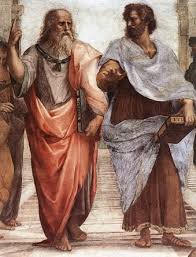|
|
|
|
 |
|
UNIVERSITY OF REGINA FACULTY OF KINESIOLOGY & HEALTH STUDIES KHS 341008: APPLIED ETHICS IN THE ADMINISTRATION OF KINESIOLOGY & HEALTH STUDIESCourse OutlineSEMESTER: 200830 (Fall 2006) INSTRUCTOR: Dr. D.C. Malloy OFFICE: KHS164.7 NR 110 LOCATION: KHS 185 PHONE: 337-3181 ______________________________________________________________________________ TEXT: Malloy, D.C., Ross, S., & Zakus, D. (2003). Sport Ethics: Concepts and Cases (2nd Edition). Toronto: Thompson Educational Publishers. COURSE DESCRIPTION: The course will involve the critical analysis, using case studies, of administration theory as applied to the practice of sport and recreation administration. COURSE OBJECTIVES: 1. To provide the student with the theoretical tools with which to analyse complex organisational problems. 2. To provide the student with the means to examine organisational phenomena from both macro and micro perspectives. 3. To provide an academic atmosphere for students to discuss, debate, and present issues and theories relevant to sport and recreation contexts. COURSE REQUIREMENTS: 1. Case Presentations - will be made each Thursday based upon case studies. Attendance and participation are mandatory. 2. Case study analyses - students will be required to submit for grading three (3) cases (30% of final grade). The complexity and length of analysis format will progress throughout the term. All students must complete the last assigned case. Case analyses must be typed and single-spaced. Late papers will not be accepted. 3. Students will be required to make a presentation (individually) on selected Thursdays dealing with an ethical dilemma (theory and practice) in kinesiology & health administration (30%). Topics must be cleared with the instructor. Presentations will begin in October. PowerPoint is recommended. Presentations should include the following: Introduction – the dilemma or problem (e.g., “hypoxic tents”) Theory – discussion of relevant ethical and administrative theory to be employed (the text is the starting point only). Application – of theory to dilemma (e.g., what would the deontological view suggest?) Resolution/Evaluation/Institutionalisation – what is the logical outcome? What are the policy implications? Details to be discussed in class. 4. Students are encouraged to engage in discussions of current events (i.e., newspaper or video clippings) as they may arise during the course of the semester. 5. Examination - December 16 Take-home exam (40%). GRADING SUMMARY: Presentation 30% Case Studies: 30% (3x10%) Final Exam: 40% TBA 100% LECTURE TOPICS: (based upon material from chapters 4, 5, & 6 of text) 1. Individual Moderators of Organisational Behaviour - demographic - psychological - philosophical 2. Significant Other Moderators of Organisational Behaviour - personal - interorganistional - extraorganisational 3. Issue Specific Moderators of Organisational Behaviour - tactical/strategic - moral intensity 4. Situational Moderators of Organisational Behaviour - climate - culture - ideology 5. External Moderators of Organisational Behaviour - political - economic - societal - technical | |
| |
|
|
|
Copyright © 2002 David
Malloy
|
|

